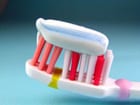 If you’re suffering from sensitive teeth or dental pain, it could be a sign of infection. But don’t panic, because City Dental Leeds provides root canal treatment to protect your tooth and soothe any pain you may be feeling.
If you’re suffering from sensitive teeth or dental pain, it could be a sign of infection. But don’t panic, because City Dental Leeds provides root canal treatment to protect your tooth and soothe any pain you may be feeling.
When a tooth infection spreads to the pulp tissue, root canal treatment is a method that saves the tooth instead of extracting it, which is usually the only alternative. The living tissue of the pulp is contained in the pulp, including the nerves and blood vessels. When the pulp becomes infected, the tooth begins to die and there is an increased risk of infection spreading.
About root canal treatment
Before starting root canal treatment, we will numb the tooth with local anaesthetic to make sure your comfort is optimised during the procedure. When the tooth is numb, we will drill into the tooth to get to the root canals. The decayed tissue will then be removed and we will thoroughly clean the tooth roots. Then, we will use a dental material called gutta percha to fill the root canals and seal them.
Usually, we will place a new crown after root canal treatment to strengthen the tooth and provide aesthetic benefits.
Benefits of root canal treatment
Root canal treatment is an effective method that prevents the extraction of an infected tooth. People are often concerned that root canal treatment is painful, but local anaesthetic coupled with our gentle expertise will ensure that you’re relaxed and comfortable throughout the procedure. This treatment reduces infection risk and decreases the chances of future tooth extraction.













